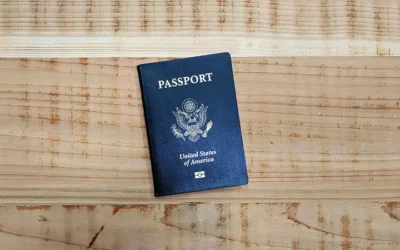As a U.S. citizen, you are required to pay estate taxes on your worldwide assets, regardless of where you reside. This means that both your U.S.-based and foreign assets fall under U.S. estate tax rules. The positive news, however, is that the estate tax exemption remains very generous. In 2025, the exemption is set at $13.99 million for individuals and $27.98 million for married couples, allowing most estates to fall well below the taxable threshold..
If your estate exceeds this threshold, it will be taxed at progressive rates of between 18-40%.
- $0 – $10,000: 18%
- $10,001 – $20,000: 20%
- $20,001 – $40,000: 22%
- $40,001 – $60,000: 24%
- $60,001 – $80,000: 26%
- $80,001 – $100,000: 28%
- $100,001 – $150,000: 30%
- $150,001 – $250,000: 32%
- $250,001 – $500,000: 34%
- $500,001 – $750,000: 37%
- $750,001 – $1,000,000: 39%
- Over $1,000,000: 40%
One downside is that there are very limited tax treaties which cover US estate taxes, meaning you may end up paying tax twice. For example, if you are above the US estate tax exemption, you will pay estate taxes in the US, plus whatever the rules are for estate taxes in the country where you live. And most other countries around the world don’t have such favourable exemptions; in fact, some countries have no exemptions at all.
So what can be done?
You should consider gifting to reduce your taxable estate. You can gift up to $19,000 per recipient annually (as of 2025) without triggering any estate or gift taxes. Anything above the exemption would first fall under your lifetime gift tax exemption, which is the estate tax exemption limit of USD 13.99m. This means no gift tax would be due until you have gifted above this amount per individual.
Other countries are unlikely to be as favourable, for example, where I live in Spain, there’s no exemption at all and gift tax rates start at a minimum of 7.65% and go up to 34%, and go up depending on who the gift is going to.
You could potentially set up strategies such as trusts, but this very much depends on what the rules are surrounding trusts in your local country. Places like the EU don’t recognise trusts, and will penalise you for having one.
Wills are also complex because there are different laws around the world. The US works off common law, where the majority of the EU, for example, works off civil law, meaning there are forced heirship rules on death.




